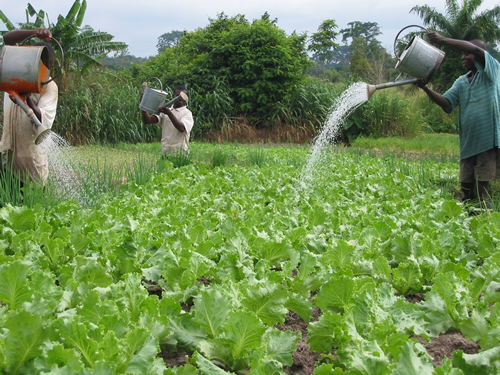Invest in agriculture to reduce poverty – Dr Jonah
 Dr Kwesi Jonah, a Senior Research Fellow at the Institute of Democratic Governance has called on government to invest in agriculture to reduce poverty in the country.
Dr Kwesi Jonah, a Senior Research Fellow at the Institute of Democratic Governance has called on government to invest in agriculture to reduce poverty in the country.
According to the Senior Research Fellow, Some of the African countries have neglected agriculture after discovery oil and gas, adding that it was imperative for government to pay attention to agriculture by modernising the practices to increase productivity.
Dr Jonah made the call on Wednesday in Accra at a stakeholder dialogue on the topic “Inclusive Growth for Sustainable Development organised by the Ministry of Planning and the National Development Planning Commission supported by UNICEF.
He said more than 60 per cent of the workforce in the country are farmers, but not touching the lives of most farmers.
According to him, statistics of poverty showed that, the poorest people in the country were the farmers and in terms of Gross Domestic Growth, agriculture recorded the lowest growth, stating that, it would be difficult to reduce inequality and poverty if agriculture was neglected.
He urged African governments to step up efforts to accelerate the continent’s path to prosperity, inclusive growth and decent jobs-creation by moving from commitments to action.
Dr Jonah said governments on the continent, private sector actors, donors and development partners needed to work together to improve the agriculture sector, noting that it was the “surest path to Africa’s prosperity”.
Mr Yaw Osafo Marfo, the Senior Minister said social protection programmes such as the Livelihoods Empowerment Against Poverty may have slowed inequality, but there were still work to be done to achieve economic and social transformation, inclusively and with equitable benefits.
He said the establishment of skills development centres, entrepreneurship development, mass cocoa spraying among others were introduced by government to make growth in such sectors inclusive.
The Senior Minister said government would continue to ensure that its policies were geared towards addressing inclusive growth, hence the need for the launch of the national public reform sector.
He said revenue gained from natural resources had the potential to facilitate the country’s economic development and said the five-year governance programme promoting inclusive economic growth in the country through improved management of the oil and resources focused on macro issues at the national level.
Professor George Gyan-Baffour, the Minister of Planning said the country’s national statistics on the 2013 Ghana Living Standards Surveys suggested that in spite of the reduction in poverty, high levels of inequality persisted and gaps between the rich and the poor may be widening.
According to him, inequalities could be found among geographical regions of the country in spite of the constitutional requirement for balance development.
He said considerable progress had been made in terms of per capita growth and in addressing the needs of the extreme poor, but there were income and well-being differentials between urban households and the rural ones.
This according to him manifested in access to services and some districts, communities and groups of people especially in the northern part of the country were missing out on the recent economic growth.
Source: GNA
